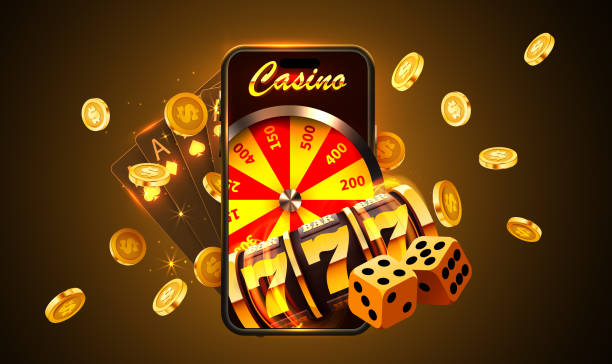
Are Slot Winnings Taxable in: Understanding the Taxation of Slot Machine Earnings
Slot machines are one of the most popular forms of gambling, attracting players with the promise of large winnings. However, one question that often arises among players is, Are Slot Winnings Taxable in Bangladesh? jaya9 “Are slot winnings taxable in the United States?” The answer is yes, and in this article, we will explore the tax implications that come with winning money from slot machines, the regulations that dictate these taxes, and how players can ensure they are compliant with the law.
The Legal Framework for Taxing Gambling Winnings
In the United States, the Internal Revenue Service (IRS) requires individuals to report any gambling winnings, which include those from slot machines, as part of their taxable income. This applies regardless of the amount won, but there are specific thresholds that can affect how winnings are taxed.
The IRS categorizes gambling income broadly, and slot winnings fall under the umbrella of gambling income. Even though a player might win a small amount, it must still be reported in their income for tax purposes. The IRS has a very clear stance: all gambling winnings are taxable, and it’s the player’s responsibility to track these winnings accurately.
Reporting Slot Winnings

When players win on a slot machine, it is important to report these earnings accurately on their tax returns. If your winnings exceed a certain amount—typically $1,200 for slot machines—you will receive a Form W-2G from the casino, which details the amount won and taxes withheld, if any. If you receive this form, you must include the amount reported in your total income for the year.
Even if you do not receive a Form W-2G, you are still required to report your winnings. This can include smaller amounts accumulated over the year, especially if they total to significant figures. Failure to report these winnings could lead to penalties and interest from the IRS.
Deductions for Gambling Losses
On the flip side, the IRS does permit players to deduct gambling losses, but this can only be done if the player itemizes their deductions on their tax return. The deductions for gambling losses cannot exceed the amount of gambling income reported. This means that if you won $5,000 but lost $7,000 during the same tax year, you can only deduct up to $5,000 in losses.
To maximize the accuracy of this reporting, it is important for gamblers to keep detailed records of their winnings and losses. Keeping a journal or log of slot machine play, including dates, amounts won, amounts lost, and location of play can be beneficial during tax season.
The Impact of State Taxes

In addition to federal income taxes, state taxes may also apply to gambling winnings. Each state has its own regulations regarding gambling, and consequently, its own tax rates applicable to winnings. Some states impose a flat tax rate on gambling winnings, while others have a tiered system that varies based on the amount won.
For example, states like Nevada do not impose a state income tax, meaning winnings from slot machines are only subject to federal taxes. On the other hand, states like New York impose state and local taxes on winnings, which could significantly increase the total tax burden on gambling income.
What Players Need to Know
When indulging in slot machines or any form of gambling, it is crucial for players to be aware of their tax liabilities. Here are several key points to remember:
- All gambling winnings, including slot machine winnings, must be reported as income.
- Players receiving winnings over $1,200 typically receive a Form W-2G, but all winnings must be reported regardless of that form.
- Gambling losses can be deducted if the player itemizes deductions, but losses cannot exceed winnings.
- State taxes may also apply, depending on local regulations, so it’s essential to check the laws in your state.
- Maintain detailed records of your gambling activities throughout the year to simplify the tax filing process.
Conclusion
Gambling can be an entertaining pursuit, and the potential for winning money is undoubtedly a primary attraction for many players. However, with such potential rewards come obligations, particularly concerning taxes. Understanding that slot winnings are indeed taxable ensures that players can enjoy their gaming experience without worry about tax repercussions. By staying informed and organized, players can navigate the complexities of gambling taxes effectively.